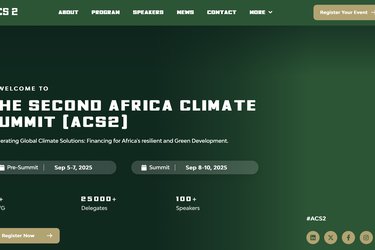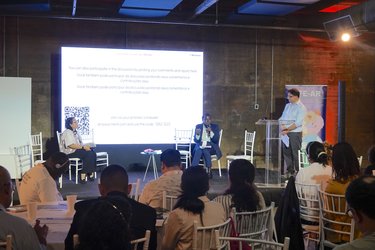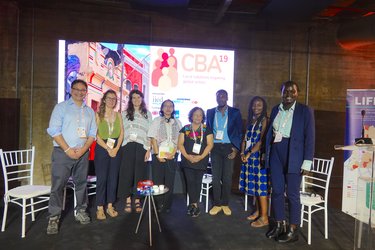
Across the globe, climate change is no longer a distant threat—it's a daily reality, especially for the most vulnerable communities. During a session co-hosted by LIFE-AR, the Huairou Commission and SouthSouthNorth, voices from Indonesia, Uganda, Brazil, Mexico, the Caribbean, and others, a shared message echoed powerfully: climate solutions must be owned by the people they aim to serve.
Scovia Akot, Climate Change Department, Ministry of Water and Environment, Uganda, Agnes Meiria D. Manggo, YAKKUM Emergency Unit (YEU), Indonesia Jonathan Angura from ACTADE in Uganda, Elsa Arroyo Hernandez, Grassroots Woman Leader and Director of MUDECI, Mexico kick started the discussion, and together with participants from the room they explored the themes below.
Before designing interventions, it is essential to understand climate risks—both at the governmental and community levels. However, understanding alone isn’t enough. Solutions must be co-created with communities. When women and local actors are involved from the outset, the resulting strategies are not only more effective—they are embraced and sustained.
“People are affected by climate, and they must own the solutions,” shared Agnes from Indonesia. Without this ownership, interventions risk becoming irrelevant or even resisted.

Community empowerment is a process. It begins with organizing, capacity strengthening, and confidence building—especially so communities can speak up, negotiate, and engage with policy processes.
In Indonesia, women are collecting local data, managing their own resilience funds, and designing tailored solutions. In Uganda, Scovia shared how local government structures, including parish committees, are being supported to become more inclusive and transparent, ensuring no group is left behind.
Real inclusion goes beyond participation in meetings. It means addressing structural barriers —racism, gender inequality, and political interference—and identifying who is missing from the conversation. Gender matters in every step of climate action. From Indonesia to Mexico, leaders stressed the need for gender-sensitive budgeting that acknowledges that men and women experience climate impacts differently.
In Uganda, when statistics showed lack of participation from people with disabilities, caregivers were engaged to ensure they could be included. In Brazil, Lidiane highlighted how women often donate time to participate, facing challenges due to systemic inequities. In Mexico, gendered budgeting helped highlight the dire impacts of flooding on women in the Talco Valley, where families—especially mothers—lived in dirty water for months after a disaster. Yet, only 1 out of 2,000 municipalities had a just food system response. The gap between need and action remains stark.
Communities must know where resources go and how decisions are made. Transparency in budgeting, procurement , and investment processes is essential. In Uganda, budget allocations for the LIFE-AR investments were shared openly, and communities were involved in investment decisions. Importantly, feedback mechanisms and a comprehensive MEL system are in place so communities can track the impact of these investments. In addition, feedback systems need to be accessible. In Uganda, storytelling through videos in local languages , local radio stations, and trusted intermediaries like sub-county chiefs help ensure voices are heard, even where literacy or smartphone access is limited.
Elsa from Mexico shared a creative approach to local accountability. When corruption was too risky to address directly, communities were encouraged to ask about school budgets—an issue tied directly to their children and their wallets. These conversations laid the groundwork for deeper engagement on climate-related spending. Meanwhile, in Indonesia, Agnes emphasized that while government-led platforms for participation are few, community-led evidence and engagement during planning processes can carve space for influence.

Jonathan from the African Centre for Trade and Development (ACTADE) posed a critical question: “How can we help communities hold governments accountable?” The answer lies in coordinated action , inclusive dialogue , and genuine political will .
There must be spaces for communities to voice priorities , and governments must respond meaningfully. National-level decisions must reflect realities on the ground. Otherwise, there is a risk of widening the disconnect between policy and lived experience.
As Scovia reminded us: “Accountability is not just the government's job. It is for all of us.”
As we move forward in climate policy and practice, we must continue to ask: